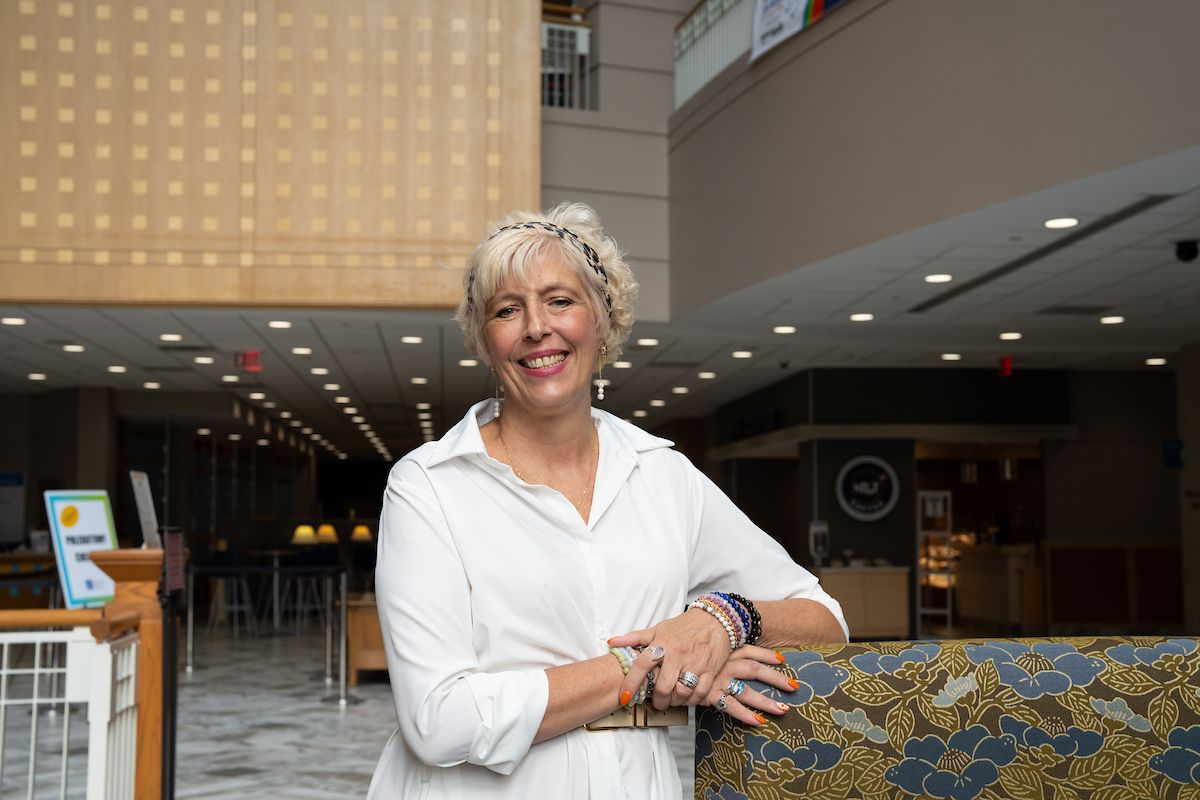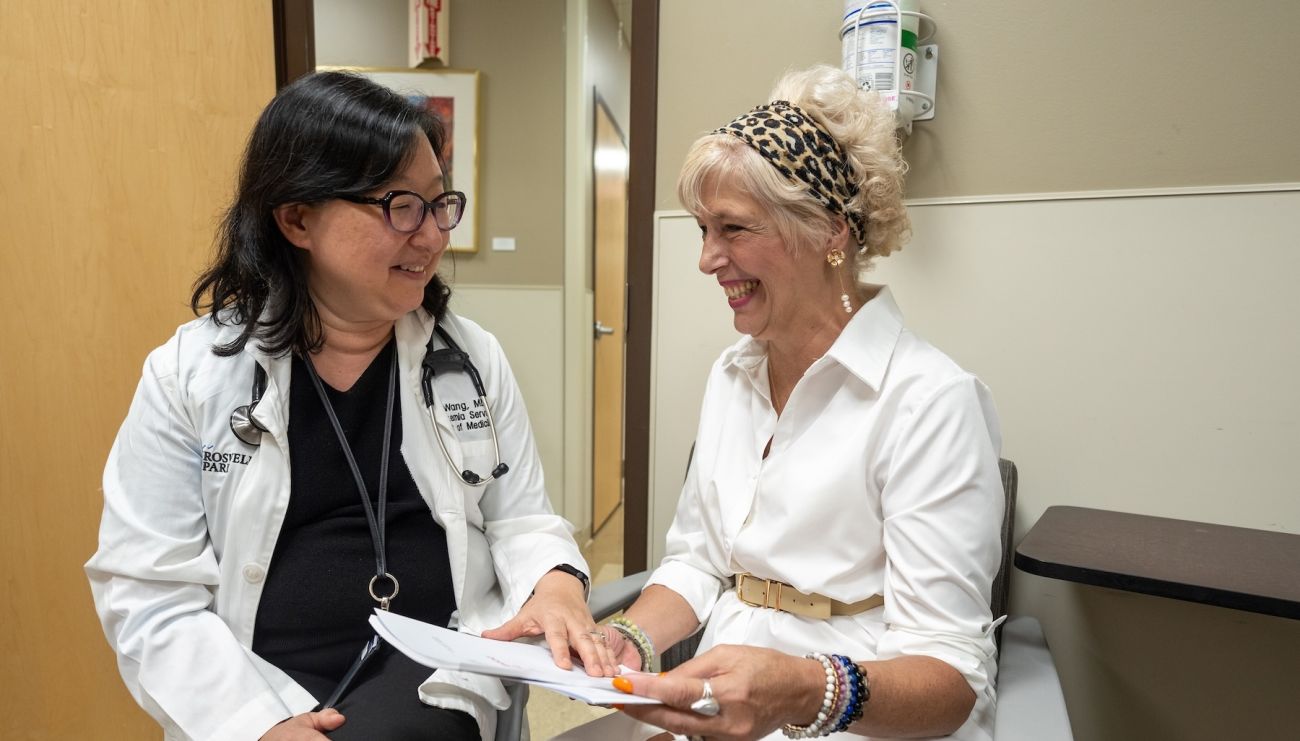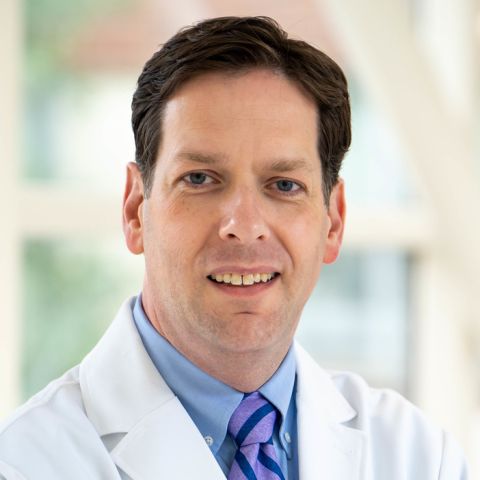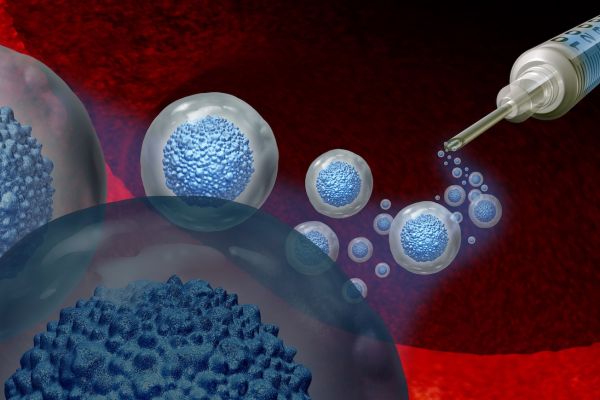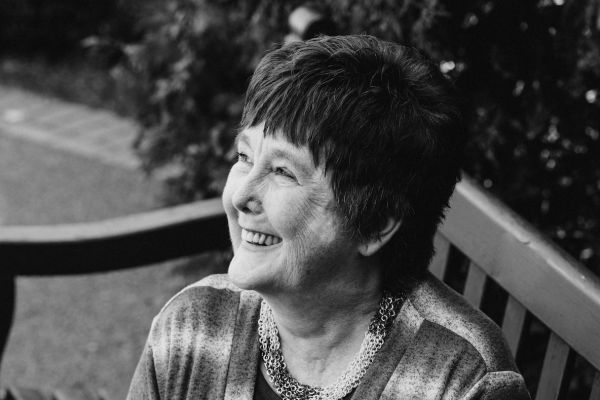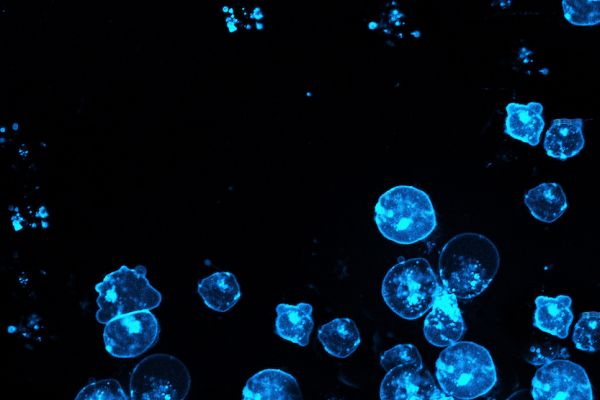A clinical trial and phenomenal Roswell Park support
Lynette Koronowski was nearly at the finish line.
After an initial diagnosis with triple-negative breast cancer in August 2022, for which she received chemotherapy, immunotherapy, radiation and a full mastectomy at Niagara Falls Memorial Medical Center, an affiliate of the Roswell Park Care Network, she was just about done with her active treatment. Following successful completion of her treatment, she continued with regular blood tests and check-ins with her physician, Bhuvana Ramkumar, MD, through early 2024 and before one of these appointments, because all her previous checks had been clear, it was suggested that she could skip the last one and head down to Florida, where her son, daughter-in-law and grandson were going to meet her.
“I said, let’s just do one more. It’s really hard to leave your doctor, I don’t think people realize how difficult it is to stop seeing them constantly,” Lynette recalls.
Her decision to have that one additional test made a big difference. The results showed that her platelets had dropped precipitously. “My blood work was always super good throughout treatment; I had very little problems. Dr. Ramkumar thought it was a mistake; there was no way my platelets were down so far.”
Another blood test was ordered and a bone marrow biopsy was completed in Florida, with the results confirming a second diagnosis for Lynette: acute myeloid leukemia (AML). She recalls feeling a little tired before the diagnosis, something she initially shrugged off as a lingering side effect from the chemotherapy pills she took for more than a year.
Fighting a secondary cancer
When she returned from Florida, Lynette met with Eunice Wang, MD, Chief of Leukemia, who had been contacted by Dr. Ramkumar about her previous treatment. From the airport, Lynette and her daughter came directly to Roswell Park Comprehensive Cancer Center and Lynette was admitted right away. “I met Dr. Wang the next day and told her she was going to be my best friend,” she laughs. “And she is my best friend now, by the way.”
“Lynette is such a person of action,” Dr. Wang says. “She just blew me out of the water. From the beginning, she said, ‘we’re going to beat this. We’re going to, this is going to be great.’”
Opting for a clinical trial
Because Lynnette’s leukemia cells had a certain mutation, Dr. Wang suggested Lynette participate in a clinical trial for patients with AML that was studying a new treatment approach. Patients are given a type of drug called a menin inhibitor, in addition to standard chemotherapy and a stem cell transplant. With what has become recognized as her signature enthusiasm and passion, Lynette agreed right away to the trial.
Lynette’s AML is considered a “secondary” cancer because it is a direct result of the chemotherapy she had for her breast cancer, explains transplant specialist Brian Betts, MD, a hematologic oncologist and Vice Chair of Strategic Initiatives at Roswell Park. “It’s unfortunate, but it’s a known side effect. Patients have around a 10% chance of developing myelodysplasia or secondary AML within a few years. Hers was early, but is a pretty typical occurrence.”
Drs. Betts and Wang worked together to devise a course of treatment for Lynette that included chemotherapy to bring her AML into remission followed by a stem cell transplant — a perfect match was found from an unrelated donor within a few weeks of her diagnosis. After her transplant, Lynette was on the daily menin inhibitor pill as part of Dr. Wang’s clinical trial for another few months.
“Timing-wise, it all worked out nicely. She’s a good example of how it should work,” Dr. Betts says.
Get a second opinion at Roswell Park
If you have been diagnosed with leukemia, you need a second opinion from experts in all types of blood cancers.
“Extremely blessed”
As of late August, Lynette remains in remission, with no evidence of disease. “We can’t say she’s cured, but she’s doing extremely well and the longer she makes it, the better,” Dr. Wang adds. “She’s had no side effects, no complications.”
While she was hospitalized for treatment, Lynette insisted on continuing to work, keeping her mind active and taking calls from her bed while nurses came by to check her vitals. Just 10 days after her transplant, Lynette was released home, part of another trial at Roswell Park in which patients are sent home to recover sooner than they had been previously in order to help their immune systems rebuild.
“I was tired, but you have to go back every day, and that was tough, but it kept me moving,” she says.
During her recovery, Lynette stayed with her parents in Sunset Bay, NY, where she was surrounded by love and support. Her son and daughter each traveled to be with her, staying for a month at a time to help care for her. Her middle daughter, who lives just down the road, was a constant presence — stepping in to give her siblings a break and ensuring Lynette was never alone. Her best friend also came to stay for a week, offering comfort and companionship.
“My entire family helped so much,” she says. “I am extremely blessed.”
Lynette continues to come to Roswell Park once a month for blood tests and, every 75 days, she gets a bone marrow biopsy as part of the clinical trial. If the new treatment approach that Lynnette received is approved by the FDA, Lynette would only need routine monthly blood tests.
Lynette also continues to have her regular appointments with both Dr. Ramkumar and Dr. Wang, who she thanks for saving her life.
“I can’t say enough good things about Roswell Park. They treat me so well. Everybody in there, these nurses, they hug me every time I come in. They’re so amazing. It’s like you have this support system of amazing, wonderful people that make you feel like you could do anything. It’s just phenomenal.”
Editor’s Note: Cancer patient outcomes and experiences may vary, even for those with the same type of cancer. An individual patient’s story should not be used as a prediction of how another patient will respond to treatment. Roswell Park is transparent about the survival rates of our patients as compared to national standards, and provides this information, when available, within the cancer type sections of this website.
